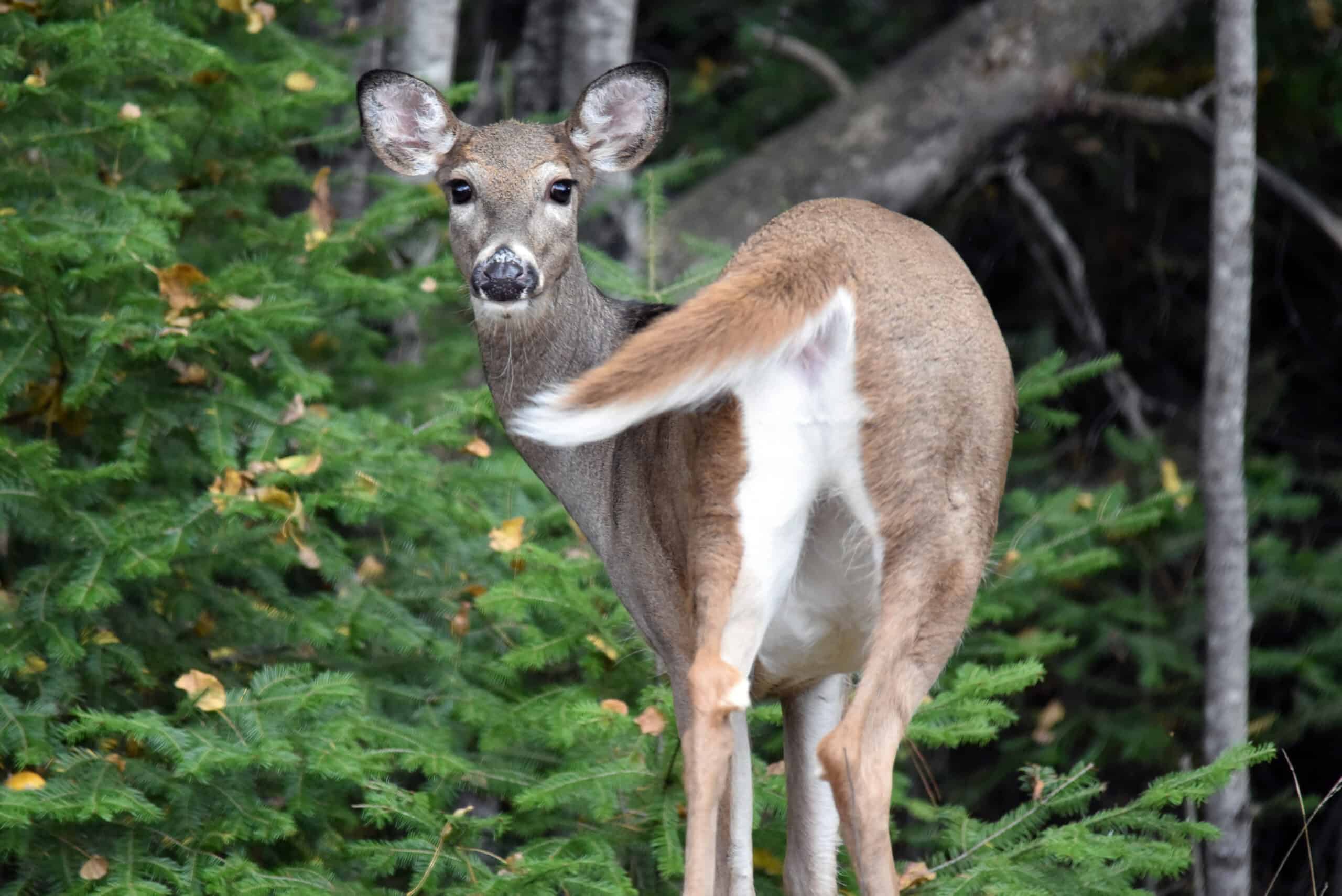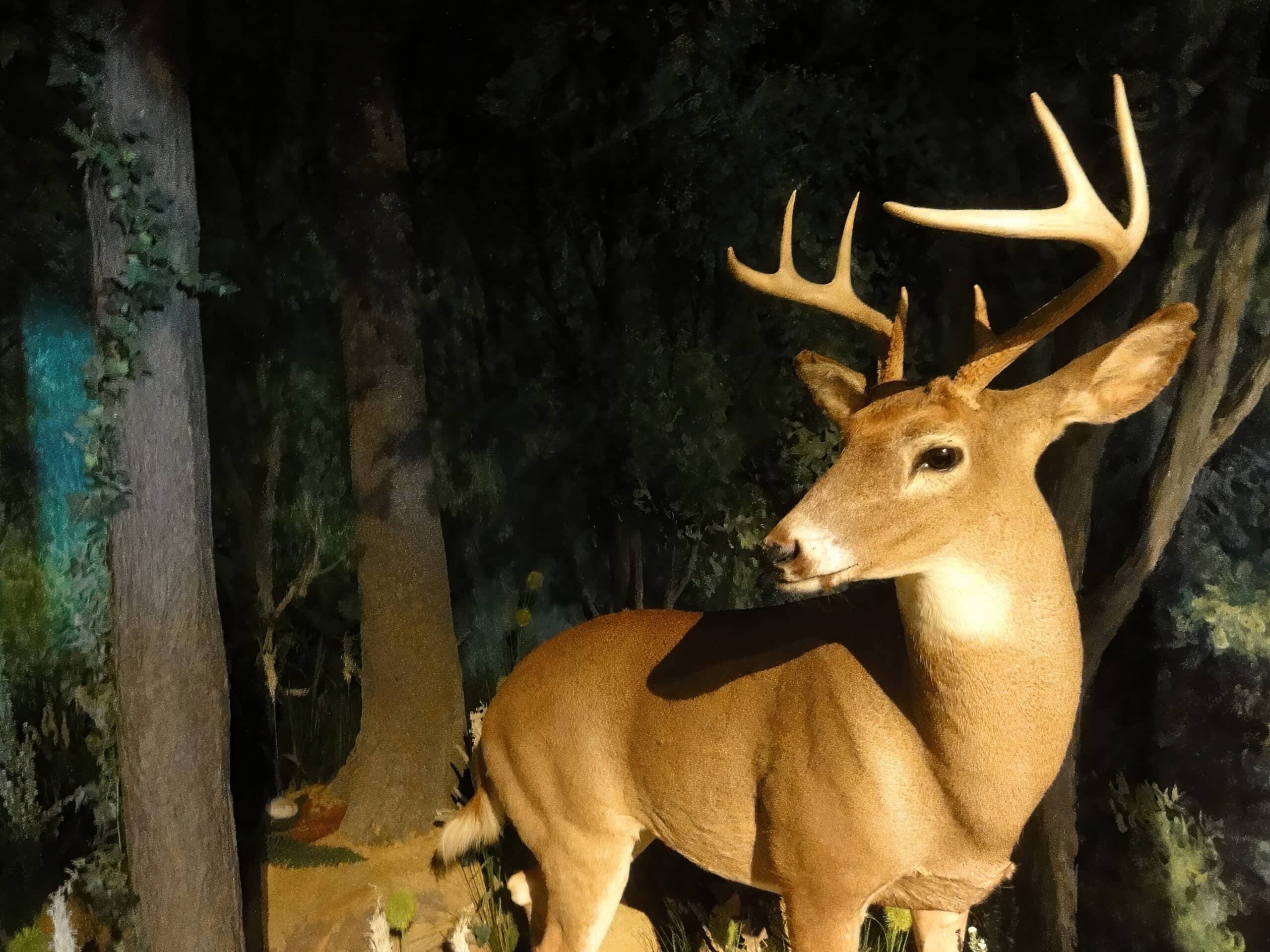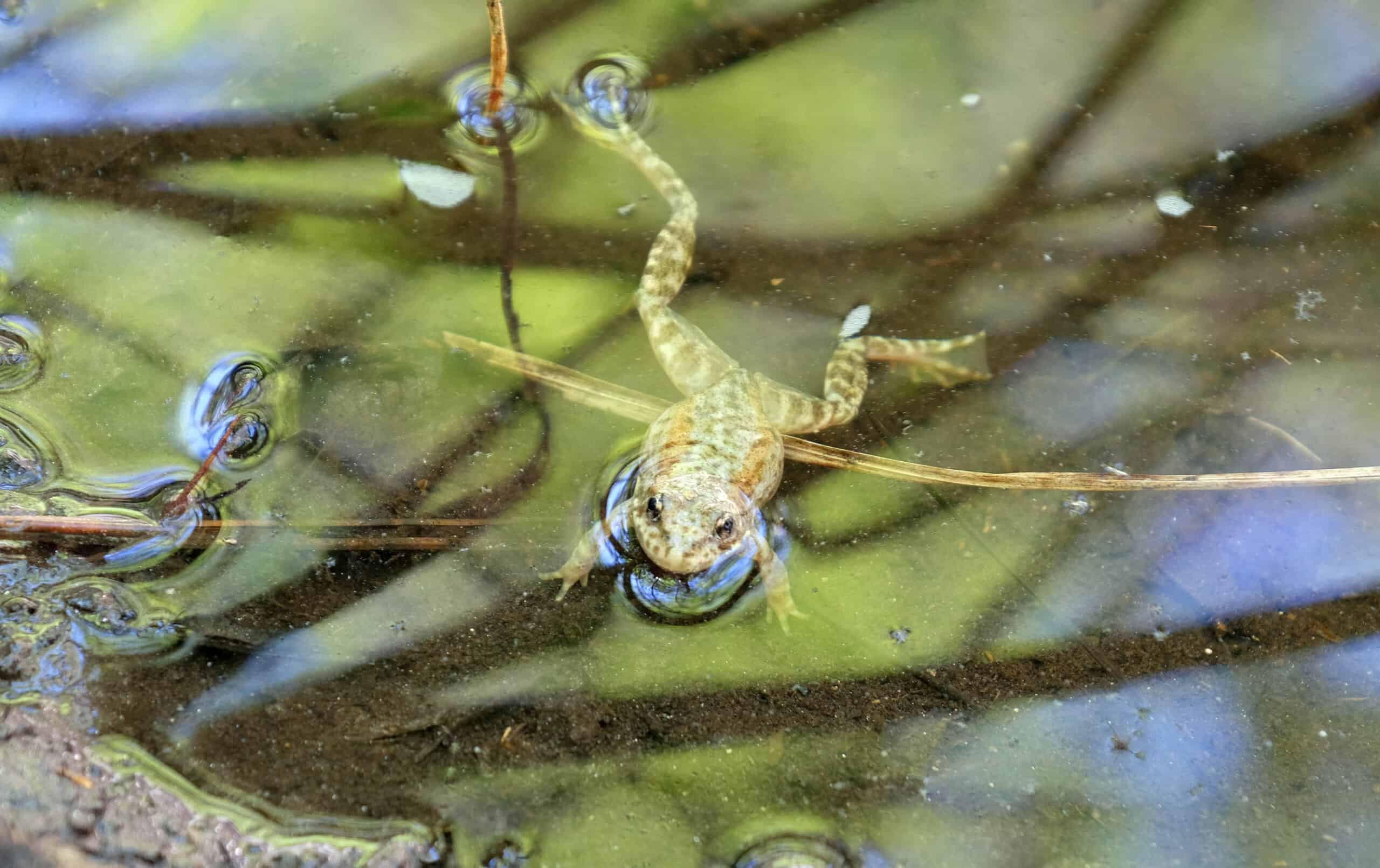Share this article
Wildlife Featured in this article
- White-tailed deer
A gut check for chronic wasting disease
Researchers are seeking a way to test live animals for the deadly disease
Researchers are exploring if gut bacteria could help identify wildlife with chronic wasting disease.
In a study published in Microbiology Spectrum, researchers analyzed fecal samples from white-tailed deer (Odocoileus virginianus) from different regions of the U.S. They found CWD-positive deer showed changes in their microbiome before outward symptoms appeared. The researchers hope that could lead to a way to test for the disease in live animals.
“This work is the start of a very promising trend to use fecal samples to both identify the disease and also learn more about the biology of the disease,” said Anna Kashina, professor of biochemistry at the University of Pennsylvania School of Veterinary Medicine.
CWD is a fatal prion disease that affects cervids including deer, elk and moose and can spread quickly between animals.
You can have deer that are infected live for two or more years, and it can take a very long time before they show clinical signs of it,” says Michelle Gibison, diagnostic laboratory testing manager at Penn Vet’s Wildlife Futures Program. Because there’s no noninvasive way to test live animals for the disease, that time lag allows for more chance for CWD to spread.
Header Image: Scientists examined white-tailed deer fecal samples to see how CWD might have affected the ungulates’ microbiomes. Credit: Courtney Celley/USFWS








